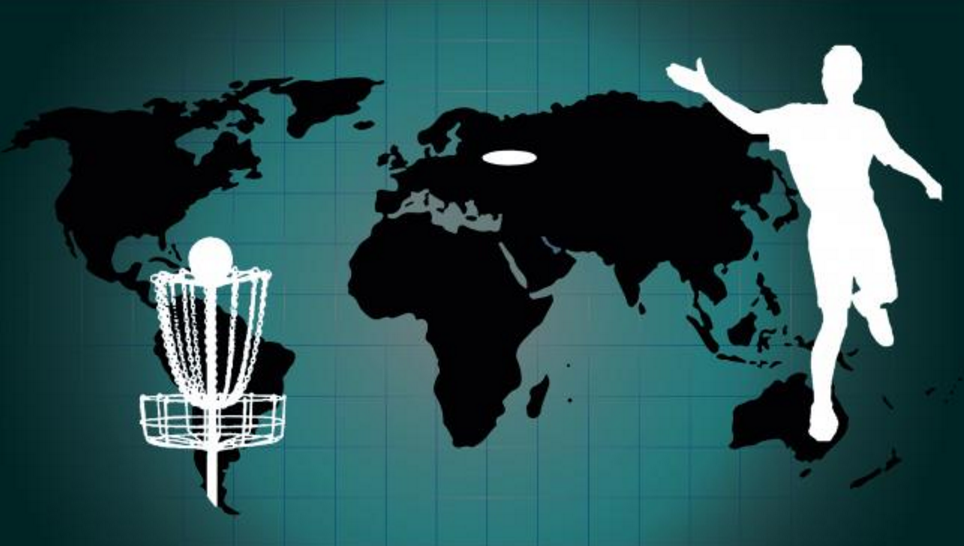What's next for disc golf's international growth?
March 3, 2016 by Steve Hill in News with 0 comments

Citing its own growth and a disparity in resources, the Professional Disc Golf Association (PDGA) terminated its membership with the World Flying Disc Federation (WFDF) after a little more than two years, the organization announced Wednesday.
The two governing bodies originally entered into a Memorandum of Understanding in January 2014, with the purpose of expanding disc golf’s international reach.
PDGA Executive Director Brian Graham attributed the move to the PDGA’s prosperity since the original agreement.
“The PDGA international program grew by an astounding 40 percent in 2015,” Graham said via email. “WFDF is a great organization, but with all due respect they are much smaller than the PDGA and have limited resources. So in order to maintain our momentum, we felt that it is in the best interest of our sport if we were to pursue our goals in growing disc golf internationally outside the constraints of a formal relationship with them.”
The WFDF, according to the organization’s 2015 Census data, has 156,956 active members in 51 affiliated countries and at the end of 2014 reported net assets of $326,441. It does not collect individual membership fees.
The PDGA, per minutes from its 2015 Fall Summit, has only 27,265 active members in 38 countries, but – in part because it collects individual membership fees – counts more than $1.2 million in assets.
WFDF President Robert “Nob” Rauch said the PDGA never hinted that breaking the MOU was on the horizon.
“We received the 30-day notice of termination letter in late January without any previous alert the PDGA board was contemplating such a move,” he said.
Despite the divorce, neither organization has abandoned disc golf’s Olympic dream.
“WFDF will continue to seek Olympic acceptance for all disc sports, including disc golf,” Graham said. “The reality is that only two disc sports have the numbers to be anywhere near being considered as an Olympic sport – ultimate and disc golf.”
Rauch confirmed the WFDF would maintain its pledge to help disc golf qualify as a future Olympic event under its Flying Disc International Olympic Committee (IOC) recognition, even if it may be more challenging without the PDGA.
“Things will be a bit trickier, but we hope to ensure that we can get disc golf on track in connection with our Olympic Movement aspirations,” Rauch said. “The IOC has made it clear that it wants to have related disciplines governed under a broader sport umbrella…We believe it is important to start getting disc golf into the discussion, and to do that we will have to build a track record of world championships with broad geographic coverage.”
In response to criticism on social media, Graham reiterated that ending the PDGA’s membership was a pragmatic decision.
“I see our withdrawal from WFDF as neither positive nor negative,” Graham said. “It is simply a more effective way for the PDGA to be able to better pursue its goals and continue our exponential growth internationally without outside constraints.”
Meanwhile, Rauch said that both sides plan to continue communicating, even if they are not formally united.
“We have had a couple calls since, and both of us want to strengthen the dialogue and are willing to work together in ways that make sense for our respective organizations and the global disc golf community,” Rauch said.
Graham echoed those sentiments.
“Despite the severing of our official ties, both organizations have pledged to continue to cooperate and work with each other on mutually beneficial projects moving forward,” he said. “Our partnership with WFDF has not ended.”
One of those projects is the World Team Disc Golf Championship, to be held in Vancouver, British Columbia, from August 18-21, 2016. Both the WFDF and PDGA have vowed to see the event through, and Rauch said he hopes it has a future beyond this year.
“I think that with time this could grow to be an incredible event that would provide elite disc golfers with the pride and honor of representing their national teams and generate a lot of spectator interest, and really ensure that there was growth and development of disc golf in many new countries,” Rauch said.
In the interim, the PDGA’s decision to withdraw its membership means the WFDF will have to reorganize its disc golf committee.
“We have had to reconstitute the committee from scratch and hope to have a new team in place by later this month if possible, composed of individuals focused on disc golf representing WFDF’s members associations who take a multi-disciplinary approach that includes disc golf,” Rauch said. “We also have offered to have a PDGA representative join the committee as an observer so that we have clear communication on disc golf matters.”
The WFDF will continue to employ PDGA rules and technical standards in disc golf events, Graham said, and the PDGA will take the WFDF up on its offer to have a representative on the committee.